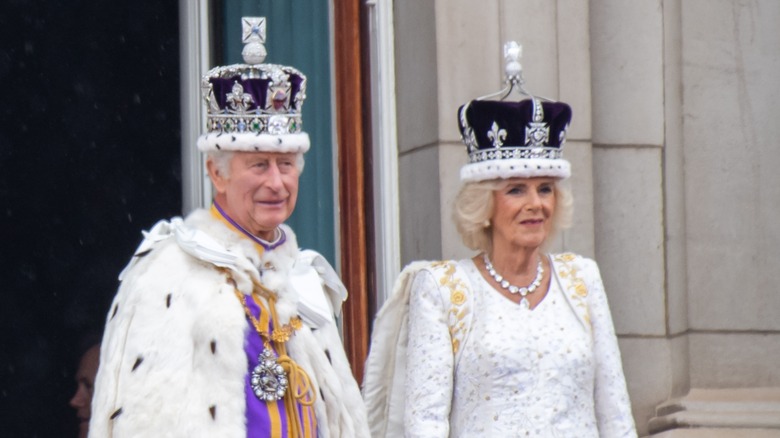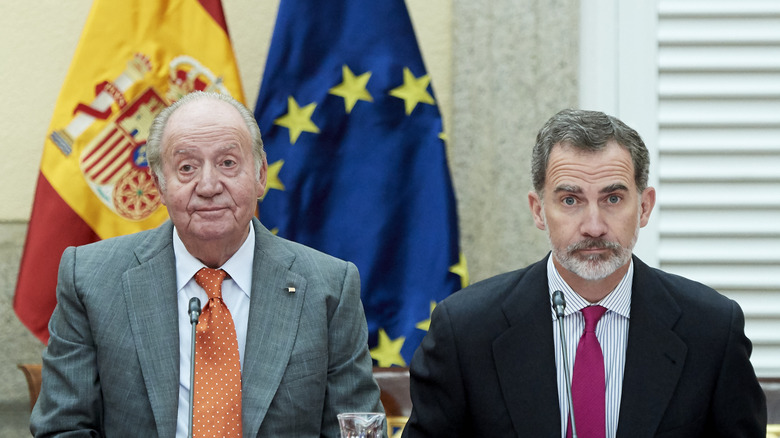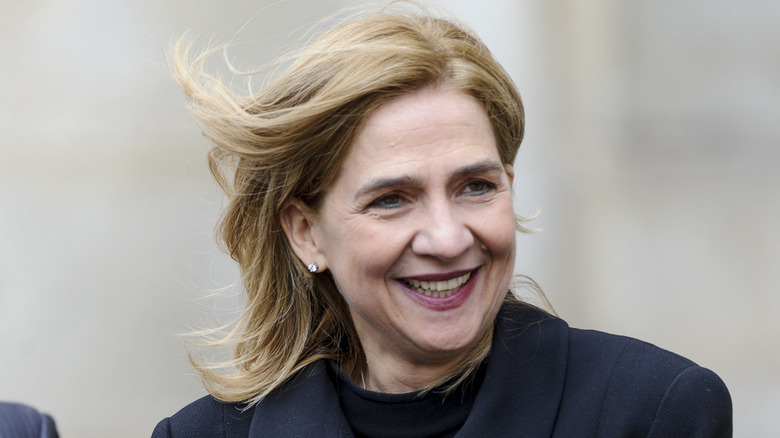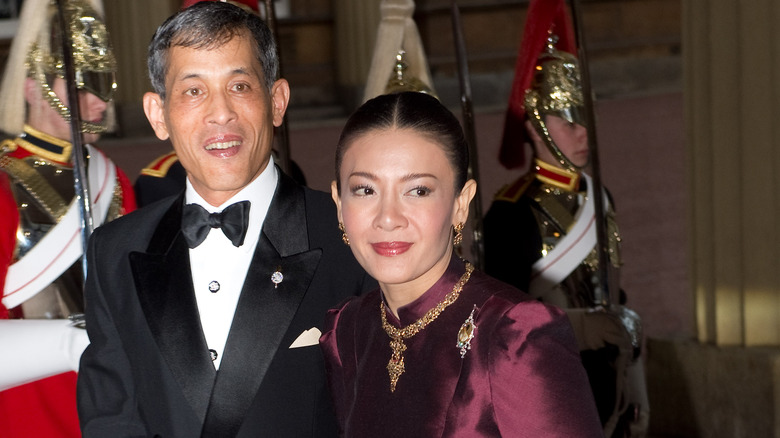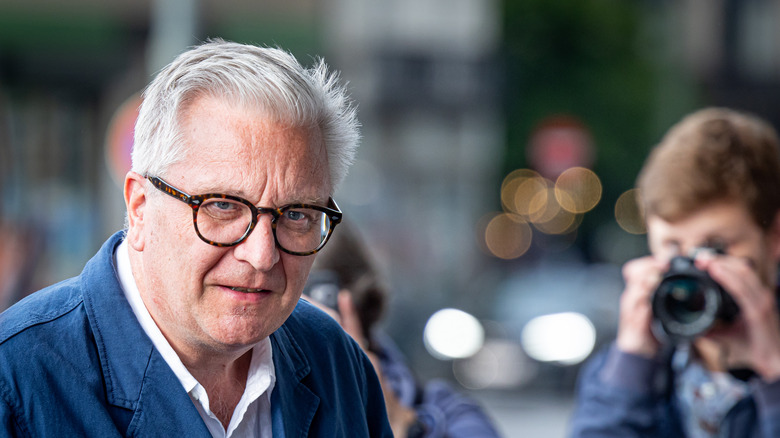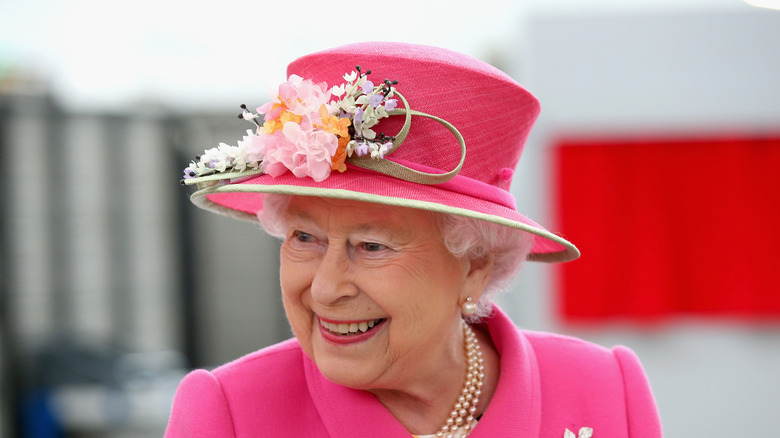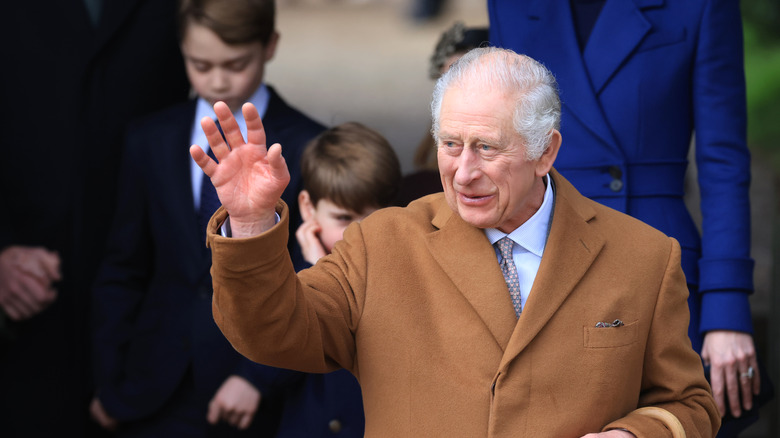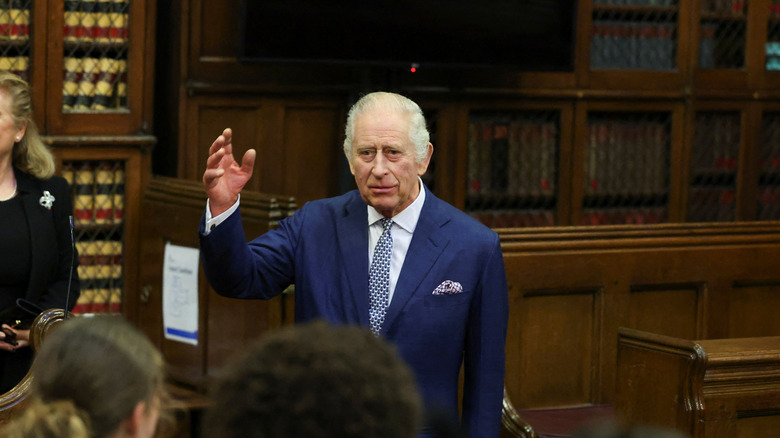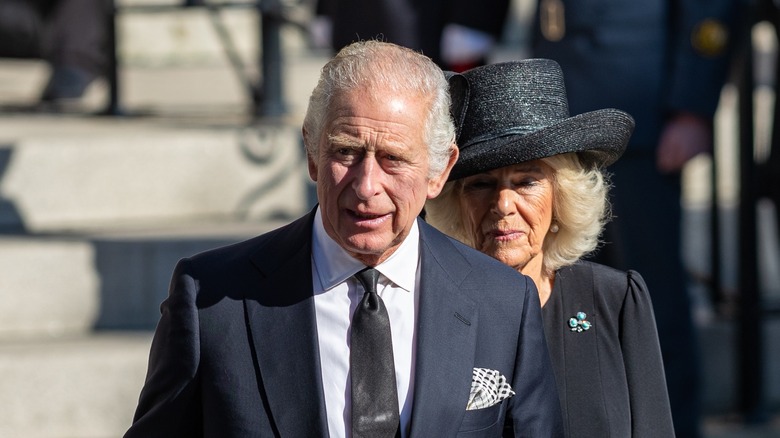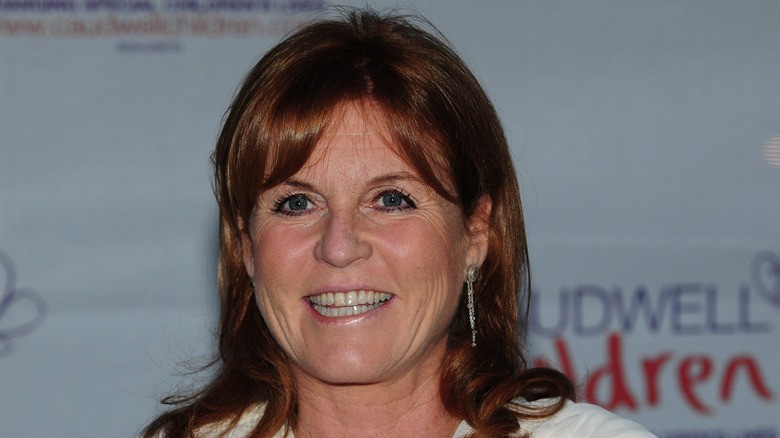Royal Financial Scandals Explained
Get ready for a captivating journey into the opulent yet scandalous world of royal finances. In this article, we'll unravel the mysteries behind some of the most notorious financial escapades that have left crowns tarnished and wallets a little lighter. From the corridors of Spanish royalty to the sprawling estates of the British monarchy, no crown jewel is left unturned.
We'll explore the corruption charges that plagued King Juan Carlos of Spain, as well as Princess Cristina's tax evasion scandal. Most importantly, we've done some digging into the British royal family, with King Charles III reportedly sitting on a personal fortune of almost £2 billion. His family members have racked up financial controversies over the years, including Queen Elizabeth II's offshore portfolio in the Cayman Islands. Of course, we can't forget Fergie, the Duchess of York who was caught giving access to her ex-husband Prince Andrew for just $40,000 upfront.
You'll be amused, astonished, and educated as we dissect the royal financial scandals that have echoed through the hallowed halls of monarchies. It's time to don your royal spectacles and embark on a journey where crowns may be heavy, but scandals are even weightier.
The many corruption charges that have faced King Juan Carlos of Spain
In the year 2020, Juan Carlos, having stepped down in 2014, found himself enmeshed in a comprehensive inquiry into his purported involvement in a transaction that bestowed a sizable €6.7 billion contract upon a Spanish consortium. This consortium's mandate was to embark on the construction of a high-speed rail line in Saudi Arabia.
In that particular time frame, disclosures surfaced, unveiling a noteworthy transaction wherein Juan Carlos received a substantial €88 million payment from King Abdullah of Saudi Arabia back in 2008. This occurred a significant three years before the contract secured approval. Despite enjoying constitutional immunity throughout his reign, Juan Carlos voluntarily abandoned this protection upon abdication. Adding complexity, ElDiario.es reported on a simultaneous investigation into Juan Carlos, Queen Sofía, and other royal family members homing in on credit card transactions spanning 2016 to 2018. Against a backdrop of scandals, including a controversial elephant hunting expedition to Botswana in 2012 during a time of great financial difficulty in Spain, Juan Carlos chose to abdicate.
Juan Carlos' son King Felipe VI officially declined any personal inheritance from his father and, additionally, revoked the annual stipend previously granted to former King Juan Carlos in 2020. The decisive actions were prompted by allegations suggesting that King Felipe was on the brink of inheriting a substantial sum from a covert offshore fund Juan Carlos had established with the help of the aforementioned Saudi payment back when he was king.
Princess Cristina of Spain getting stripped of her duchess title after tax evasion scandal
In a dramatic turn of events, Princess Cristina of Spain faced the stark consequences of a tax evasion scandal, leading to the stripping of her prestigious duchess title by her own brother, King Felipe VI. In a legal saga that unfolded in the historic city of Palma de Mallorca, Princess Cristina's spouse Iñaki Urdangarin faced a consequential verdict, leading to a six-year and three-month prison sentence and a hefty fine exceeding €500,000. Convicted on charges encompassing embezzlement, fraud, and tax evasion, Urdangarin, a former Olympic handball player turned businessman, was accused of exploiting his royal connections to secure inflated public contracts, diverting the funds toward his opulent lifestyle.
Princess Cristina found herself at the epicenter of unprecedented legal scrutiny and was the first Spanish royal to confront criminal charges since the reinstatement of the Spanish monarchy in 1975. While she was ultimately acquitted, she incurred a €265,000 fine of "civil responsibility," acknowledging her unwitting association with her husband's activities, which played a central role in his high-profile trial.
Those proceedings implicated Urdangarin and his business partner Diego Torres in the embezzlement of approximately €6 million from public funds channeled to their nonprofit organization, the Nóos Institute. The prosecution argued that Princess Cristina couldn't have been oblivious to her husband's actions. During a lengthy interrogation in February 2014, she often responded with "I don't know" and "I don't remember."
Family of Thai princess stripped of titles after financial corruption allegations
In a surprising twist of events in 2014, the Crown Prince of Thailand, Maha Vajiralongkorn, took decisive measures to revoke the royal designation bestowed upon the family of his wife, then known as Princess Srirasmi. This decision unfolded amid the arrest of several family members implicated in a major bribery and financial corruption scandal. This led the prince to purge some of Srirasmi's relatives from the royal family, starting with the dismissal of her uncle, a prominent figure in Thailand's senior police hierarchy. In an official statement, Crown Prince Maha Vajiralongkorn's office directed the Thai Interior Ministry to strip the then-princess' family of their royal-assigned surname of Akharaphongpreecha.
Crown Prince Maha Vajiralongkorn, poised as the heir to the Thai throne, plays a crucial role in a monarchy governed by a 1915 law that bestows honorary names upon families in recognition of their service. The far-reaching consequences of the scandal materialized as three of the then-princess' brothers were among 19 individuals arrested in a crackdown on alleged police corruption in November 2015. The raids yielded tens of millions of dollars in assets and resulted in her brothers' imprisonment for five and a half years. Additionally, her parents, Apiruj and Wanthanee Suwadee, faced a 2-and-a-half-year imprisonment term on charges related to defaming the monarchy.
These events marked the dramatic downfall of Srirasmi Suwadee, formerly Princess Srirasmi, who divorced Crown Prince Maha Vajiralongkorn and relinquished her royal title in December 2014.
Prince Laurent of Belgium forced to pay back €16,000 for items he claimed as state expenses
In 2016, Prince Laurent of Belgium, younger sibling of King Philippe, reimbursed the Belgian state with €16,000, settling expenses linked to his ski holiday, supermarket bills, and school fees for his three children, all initially claimed as state-related. This action was prompted by the release of a critical report from the Belgian Court of Audit, leading Prime Minister Charles Michel to advocate for the prince's repayment. Laurent has long courted controversy for his lifestyle, harboring a passion for luxurious vehicles. However, his driving privileges were revoked when caught exceeding speed limits in Brussels.
Prince Laurent's extravagant spending patterns meant Princess Claire, his wife, had to dip into her savings to sustain their lifestyle. The strained relationship between the royal sibling and Prime Minister Charles Michel traces back to 2017, marked by a 15% reduction in Laurent's annual allowance. This penalty resulted from Laurent's unsanctioned appearance in naval attire alongside Chinese military officials during the 90th-anniversary celebration of the People's Liberation Army at the Chinese Embassy in Brussels.
However, the ongoing discord originated from a more profound disagreement, with the prince asserting that the government neglected to safeguard his interests in a €50 million deal pledged by the late Libyan dictator Muammar Gaddafi for a forestry project. Despite frozen Gaddafi funds in Brussels, Laurent was frustrated at being denied repayment, interpreting it, according to Politico, as a vendetta orchestrated by the Belgian government.
Queen Elizabeth II's private estate invested millions in an offshore portfolio in the Cayman Islands
In 2017, the Paradise Papers, a leak of 13.4 million digital files that expose the offshore financial activities of individuals and entities, revealed that the Duchy of Lancaster, the private estate of Queen Elizabeth II, invested millions of pounds offshore, specifically in the Cayman Islands and Bermuda. The Duchy of Lancaster's investments in these funds were estimated to be £10 million. This included investments in a retailer that had been criticized for exploiting numerous low-income families. The revelation sparked controversy in the U.K. because it raised questions about the queen's financial practices and potential ethical implications.
This disclosure was part of the Paradise Papers' broader investigation. Their documents found their way into the hands of German journalists Frederik Obermaier and Bastian Obermayer, who uncovered the information while working for the Süddeutsche Zeitung newspaper.
Following their discovery, the newspaper collaborated with the International Consortium of Investigative Journalists (ICIJ), disseminating the data to a vast network encompassing over 380 journalists. The revelations brought to light intricate details about offshore investments, illuminating a complex world of financial maneuvering on a global scale. The leak implicated not only the queen but also other members of the British royal family, including King Charles III.
King Charles III's private estate invested in offshore company lobbying for climate change agreements
The 2017 Paradise Papers also uncovered King Charles III's personal estate's involvement in Sustainable Forestry Management, a Bermuda-based company. The documents indicated that the Duchy of Cornwall, King Charles' personal estate, was introduced to the fund by the late Hugh van Cutsem, an old friend from Cambridge University. The company pledged secrecy regarding the then-prince's investment of $113,500, with board minutes from February 2007 affirming unanimous agreement on confidentiality, except where legally mandated. By 2008, his estate had divested the shares for around $325,000. Despite high-profile investments and plans to profit from emission offsets, Sustainable Forestry faced challenges during the global financial crisis, leading to its liquidation in 2011.
The Paradise Papers further expose the Duchy of Cornwall's covert investment in Sustainable Forestry Management Ltd., a company lobbying to alter climate agreements. The Prince endorsed these changes through speeches, and the duchy tripled its investment within a year, though the reasons remain unclear. A spokesman for Clarence House claimed the king's lack of direct involvement in investment decisions then and denied he advocated topics solely due to duchy investments. The revelations raise concerns about conflict of interest regulations for royals. The origins of the Duchy of Cornwall date back to 1337 when King Edward III founded it for his son, Prince Edward. It has now passed from King Charles III to his son Prince William, who earns an annual income from the estate's revenue.
King Charles III uses the archaic law Bono Vacantia to profit off the assets of dead citizens
King Charles faced scrutiny in 2023 over clandestine profiting from the assets of deceased citizens, a revelation centered on the northwest of England. Allegedly exploiting the deaths of thousands, the monarch benefits from assets quietly diverted to upgrade a commercial property empire overseen by the king's hereditary estate. This covert maneuver involves the use of "bona vacantia" funds comprised of assets left by those who died without a will or legal heirs.
Insiders assert that King Charles' property empire treats these assets as a source of "free money," prompting ethical concerns. The Guardian's investigation exposed the discreet integration of deceased individuals' assets into the king's property portfolio, with a notable allocation of bona vacantia funds directed toward renovating royal estate properties. This strategic utilization of bona vacantia funds stands as a considerable financial advantage for the royal estate. Its ongoing practice enhances the profitability of rental properties, indirectly favoring the king, who annually receives substantial duchy profits.
In contrast to the common procedure in England and Wales, where assets of those without a will are surrendered to the treasury for public service allocation through the bona vacantia system, hereditary estates, particularly duchies linked to the royal family, can acquire bona vacantia from individuals who pass away in specific regions of England. Among these estates, the Duchy of Cornwall actively accumulates bona vacantia funds from deceased individuals' estates in the Cornish region.
King Charles III accepted 2.6 million pounds in cash from billionaire Qatari sheikh
In a shocking revelation, King Charles faced scrutiny in 2022 over allegations that he accepted £2.6 million in cash from a Qatari sheikh, sparking an investigation by the Metropolitan Police. This controversy centered on meetings between the then-Prince of Wales and a senior Qatari politician between 2011 and 2015, during which he is said to have received bags containing millions of euros in cash. If we're getting specific, one of the bags was from Fortnum & Mason, so very regal.
The funds were purportedly intended for royal charities, raising ethical concerns and prompting calls for a thorough investigation into the source and purpose of the cash. A Sunday Times report detailed the specific events surrounding these transactions, shedding light on their potential implications for the royal family and their charitable activities. The Metropolitan Police had been urged to delve into the matter considering the gravity of the allegations. The investigation sought to determine the legitimacy of the funds, the nature of the meetings between then-Prince Charles and the Qatari sheikh, and whether proper protocols were followed in accepting such a substantial amount of cash.
Just a year earlier, Michael Fawcett, Charles' chief confidant, resigned amid mounting pressure. This decision came as scrutiny intensified on donations directed to The Prince's Foundation, one of his charitable endeavors. Allegations surfaced, suggesting Fawcett's involvement in aiding a notable Saudi patron in the pursuit of a knighthood and British citizenship, prompting his departure.
Fergie caught giving access to ex-husband Prince Andrew for $40,000
In 2010, a notable bribery scandal involving Sarah Ferguson, the Duchess of York, came to light, capturing public attention and sparking discussions about the conduct of individuals associated with the British royal family. The controversy emerged from a covertly recorded video in which the duchess was seen accepting a £500,000 bribe from an undercover reporter posing as a wealthy businessman. The footage revealed her willingness to facilitate access to her ex-husband, Prince Andrew, a member of the royal family, in exchange for the substantial payment.
She managed to negotiate for $40,000 cash in the moment, with further future payment to come. In a particularly cringeworthy moment, she discussed with a News of the World reporter how she would get the money home, and they decided she would put it in his computer bag. Fergie later sat down with Oprah, telling the talk show host, "There aren't really very many words to describe an act of such gross stupidity. I think this is the key to the whole of my life now."
The scandal raised questions about the judgment and integrity of Ferguson, who was no longer a part of the royal household but remained connected to it through her previous marriage. The incident fueled public scrutiny and commentary on the potential impact of such controversies on the reputation of the British monarchy. The video's release triggered widespread media coverage, with various opinions emerging regarding its consequences for Ferguson.

